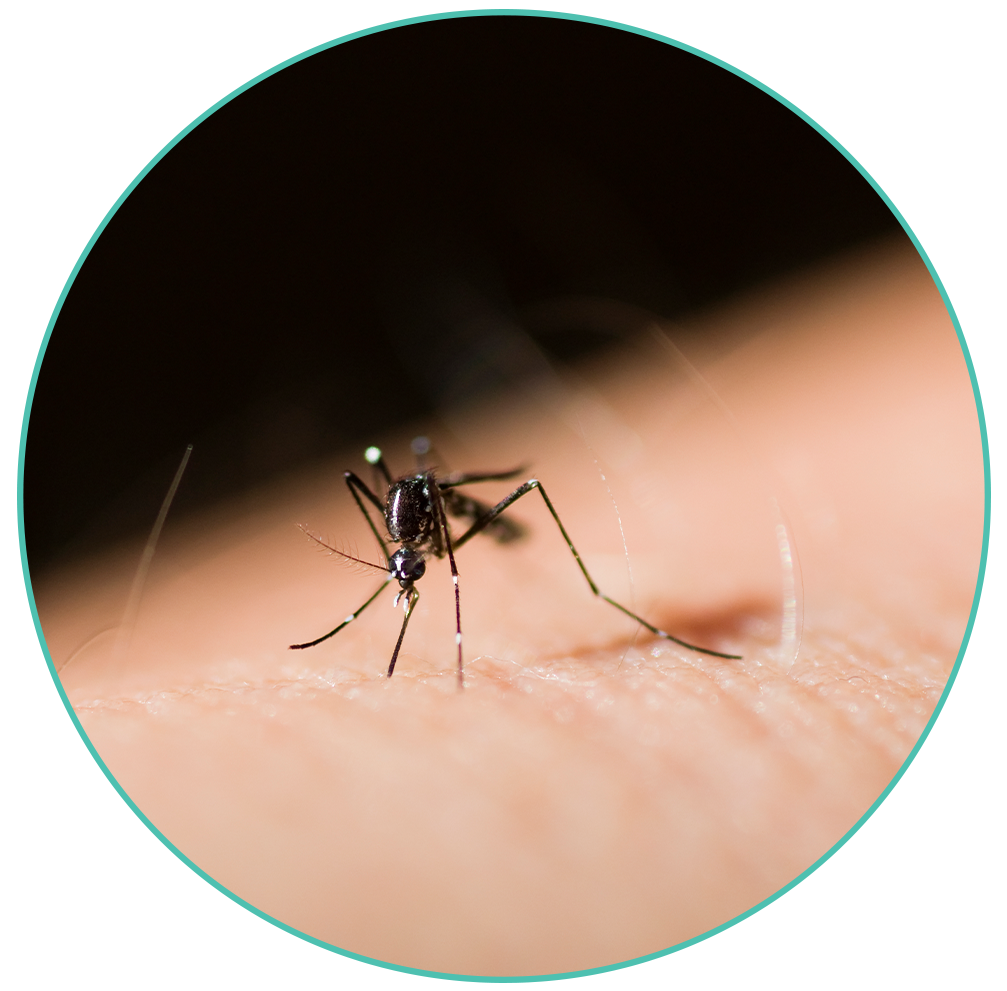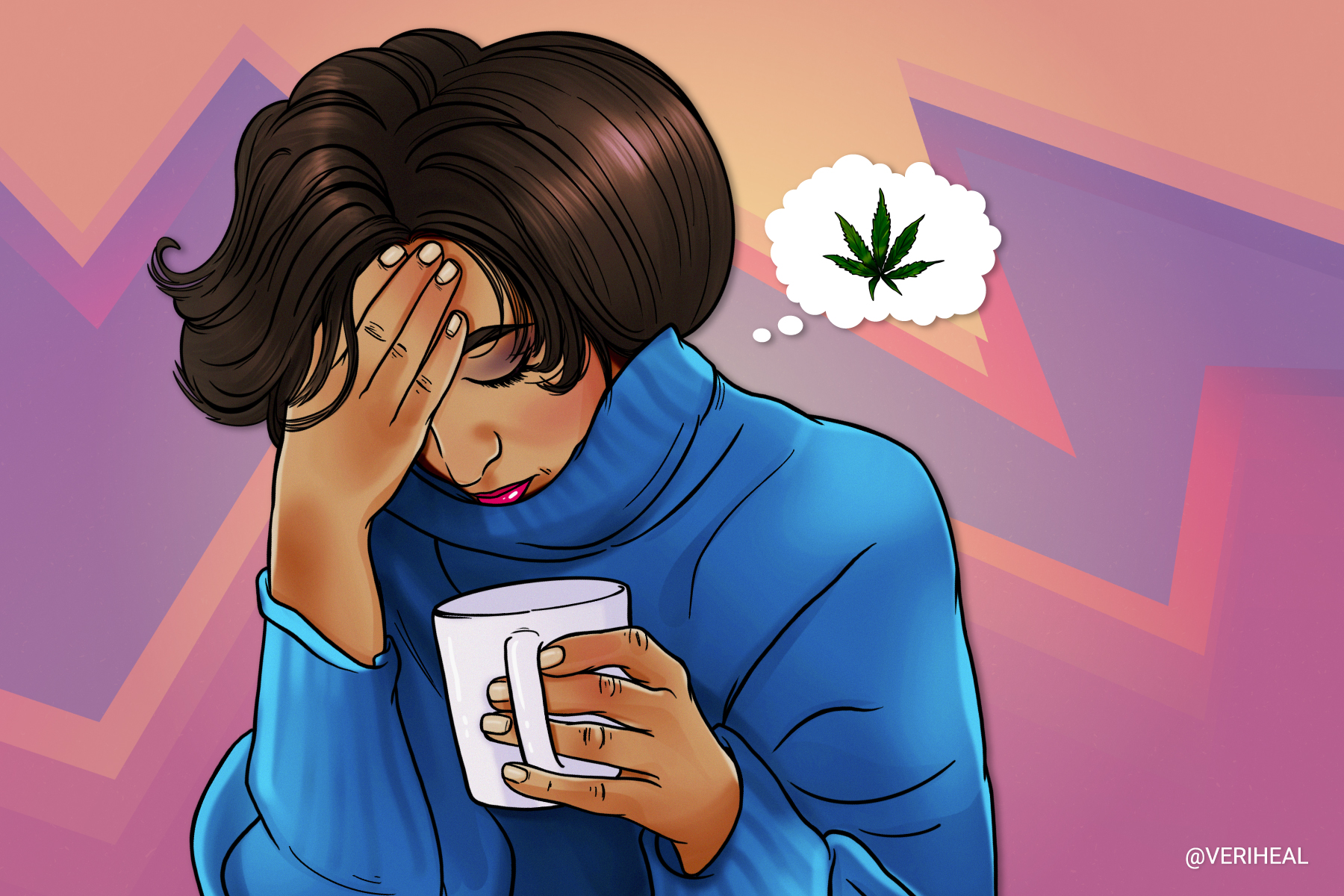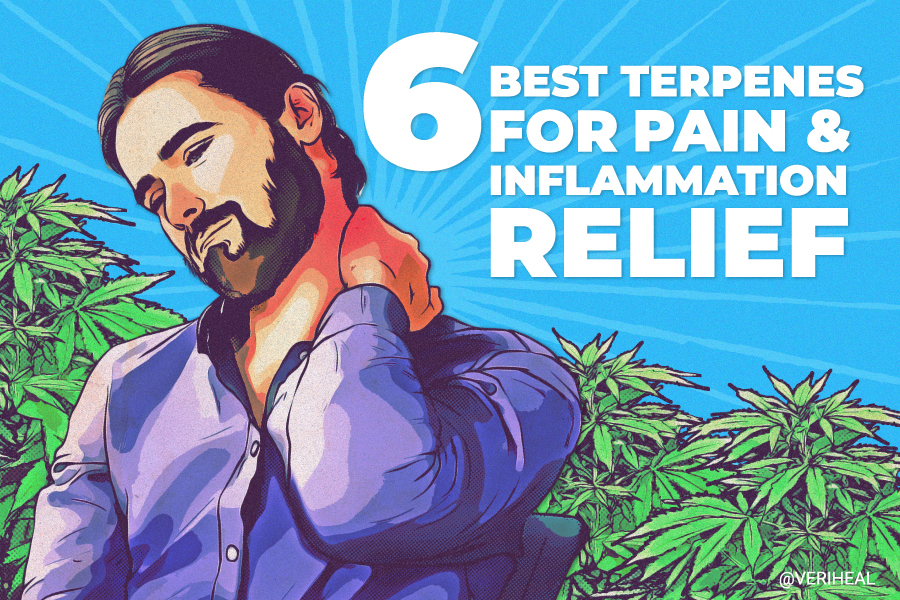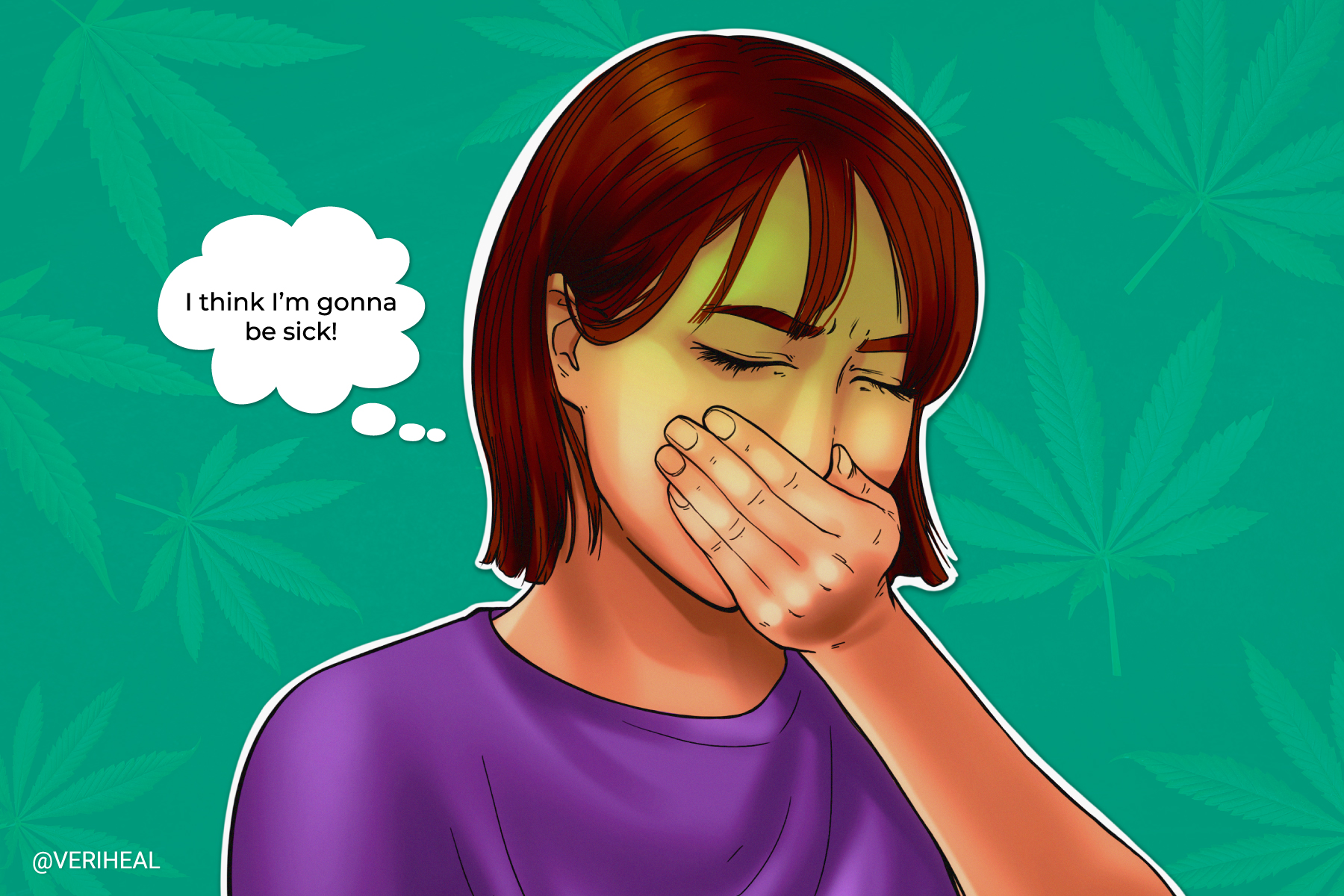Jamestown Canyon Virus (JCV) and Medical Cannabis Treatment
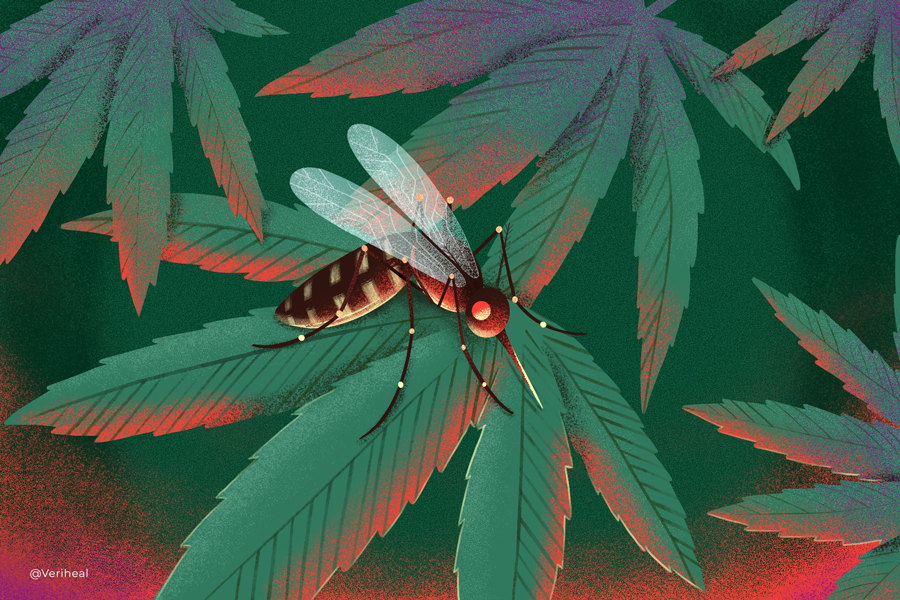
- What are the Signs, Symptoms and Types of Jamestown Canyon Virus Infection?
- JCV Infection: Causes and Complications
- Are Cannabinoids a Good Treatment Option for JCV?
- The Endocannabinoid System (ECS) and Treating JCV
- Cannabis Products Recommended for Jamestown Canyon Virus Infection
- Talk to Your Doctor About JCV Treatments
Jamestown Canyon virus (JCV) is one of the rarest types of mosquito-borne illnesses found across much of the United States. It is an Orthobunyavirus belonging to the California serogroup, which includes the California encephalitis virus, La Crosse virus (LACV), Trivittatus virus, and Snowshoe hare virus (2).
Isolated for the first time in 1961 from a lagoon of Culiseta inornata mosquitoes in Jamestown Canyon, Colorado, JCV can sometimes progress to encephalitis – inflammation of the brain (8). In severe cases, this type of virus can cause an acute febrile illness, meningitis, or meningoencephalitis (1).
Research indicates that JCV-neutralizing antibodies have been discovered in a variety of different mammals throughout the North American mainland. Moreover, JCV-neutralizing antibodies have also been identified in humans in the U.S. (13). This means that some people may be asymptomatic or have milder symptoms, but statistics like these remain unknown.
Most JCV cases, which tend to arise from late spring through mid-fall, are reported in the upper Midwest (2). In 2020 there were a total of 13 reported infections, and 10 of them had neurological involvement. To date, no vaccine, cure, or specific medicine has been identified, but patients can relieve the symptoms to some extent with certain supportive treatment methods.
Doctors advise infected patients to get plenty of rest, which is where cannabis — a natural relaxant — could come in handy. Since some cannabinoids possess painkilling and anti-inflammatory properties, the plant could be a welcome addition to a patient’s at-home care plan. However, about half of the known cases are severe (neurological involvement), requiring hospitalization and approved treatment methods instead.
What are the Signs, Symptoms and Types of Jamestown Canyon Virus Infection?
The scale of this illness is still widely unknown, with the Jamestown Canyon virus being a rare and fairly newly-discovered disease. However, what scientists and doctors have learned is that the symptoms of these arboviruses — which have been likened to flu and fever-like illnesses — may transpire suddenly. These diseases are transmitted by arthropods like mosquitoes and ticks.
Death is uncommon among patients with JCV. Nonetheless, the symptoms can be debilitating for the people who experience them; many infected people do not experience any or have only mild symptoms. In symptomatic cases, virus indicators usually transpire within 2 – 14 days of being bitten by an infected mosquito.
Early or mild symptoms of JCV may include the following:
- Cough
- Fever
- Fatigue
- Headache
- Runny nose
- Sore throat
In serious cases of Jamestown Canyon virus, patients may endure neurologic symptoms, including meningitis (inflammation of brain-enveloped membranes) or meningoencephalitis (inflammation of the brain and surrounding tissues). Signs of neurologic problems include:
JCV Infection: Causes and Complications
Since the virus was first brought to light in 1961, it has unfurled across much of the U.S. and North America, but cases are more frequently diagnosed in the upper Midwest states. More than half of JCV cases have occurred in Minnesota and Wisconsin. The mosquitoes that transmit this virus become infected after feeding on deer and other wild animals that carry the virus in their blood.
Although it’s infectious, Jamestown Canyon only spreads when someone is bitten by a mosquito, meaning that it is not contagious from one person to another. Nor can an infected person then give it to a different mosquito.
That said, you need not worry about contracting the virus if an infected person coughs, sneezes, or touches you, nor can you catch JCV if you share everyday items (e.g., towels, toothbrushes, or drinking cups).
Some complications of Jamestown Canyon Virus include brain swelling, seizures, and mental confusion. You can avoid these potential complications by reducing the chances of getting bitten by an infected mosquito, such as by wearing suitable protective clothing and using insect repellent that has been approved by the Environmental Protection Agency (EPA).
The CDC also recommends treating clothing and gear with 0.5% permethrin and taking steps to control mosquitoes indoors and outdoors. This means using mosquito nets indoors when traveling and removing trash, tires, coconuts, and other debris that cause areas of standing water where mosquitoes breed their eggs (3).
Are Cannabinoids a Good Treatment Option for JCV?
Endocannabinoids and phytocannabinoids, the cannabis plant’s uniquely active compounds, may play a primary role in the immunoregulatory response when someone is dealing with an infectious disease. The immune system is a crucial system for warding off attacks on the human body from pathogens and foreign agents. Innate and adaptive immunity mechanisms are utilized by the immune system to fight off disease, depending on the specific nature of the contaminants that the body has been exposed to (7).
The wondrous thing about cannabinoids is that they may be used to ease a wide scope of symptoms associated with Jamestown Canyon virus, including headache, fatigue and malaise, nausea, decreased appetite, and fever. JCV can also spark a range of respiratory symptoms such as cough, runny nose, and sore throat. According to the Centers for Disease Control and Prevention (CDC), the virus may also result in brain infection (encephalitis) or the membranes enveloping the brain and spinal cord (meningitis) (4).
With cannabis’ primary active cannabinoids CBD (cannabidiol) and THC (tetrahydrocannabinol) demonstrating anti-inflammatory, pain-relieving, and sleep-inducing effects, it’s understandable why some patients might consider using the green plant to help ease inflammation of the air passages, minimize body aches, regain appetite, induce a good night’s sleep, and boost overall relaxation (11).
When it comes to treating flu with cannabinoids, the plant should not be used as a substitute for prescribed meds. Nonetheless, as a plant that can suppress the immune system, it is possible that cannabis may harbor antipyretic or fever-reducing properties. Plus, unlike opioid medications, cannabis is largely non-addictive and has never caused a fatal overdose (17).
Research from Oregon State suggests that hemp compounds reduce the chances of coronavirus from penetrating human cells (9). Considering the fact that coronavirus is considered to be a type of virus, these findings bring up the possibility that two specific cannabinoids, cannabigerolic acid (CBGA) and cannabidiolic acid (CBDA), could help prevent other viral infections and flu-like symptoms in patients with JCV.
However, at this time, we can only extrapolate based on preclinical evidence. There aren’t any direct human studies yet on cannabinoids and COVID or JCV That prove any differences in outcomes or benefits. And unfortunately, in general, it appears that cannabis use is otherwise well-known for increasing susceptibility to certain infections because of its immune-modifying roles (7).
A separate study trial that saw patients receive cannabinoids in the form of 19% tetrahydrocannabinol (THC) and THC + 9% cannabidiol (CBD) discovered that a 200mg dose successfully minimized the severity of migraine pain by an impressive 55% (15).
Furthermore, scientific studies have shed some light on the neuroprotective properties of cannabinoids in cases of mental and motor dysfunction caused by neurodegenerative disease. Because of their natural capability to protect the brain, cannabinoids could offer hope for reducing neurological damage (6).
In order to prove any benefits, researchers will need to see if there are any clinically measurable differences in neuroinflammation, imaging, recovery rates, and other inflammatory markers and outcomes when using cannabis in JCV, COVID, or other neurodegenerative diseases.
Unfortunately, there is no direct data to prove that cannabinoids are effective for preventing, managing, mitigating, diagnosing, or treating Jamestown Canyon virus or its severe complications. Severe complications such as meningitis and encephalitis need to be treated emergently with advanced care strategies and monitored for severe complications such as elevated intracranial pressure, seizures, and inability to protect the airway (3). Traditional outpatient therapies may include medications for pain, inflammation, and nausea.
The Endocannabinoid System (ECS) and Treating JCV
Scientists have continuously dug deeper into the function of cannabinoid receptors since they were first identified throughout the vertebrate body in the early 1990s (16). With the current research, we can understand that powerful cannabimimetics led scientists to better understand the purpose of a naturally occurring lipid signaling system known as the endocannabinoid system (ECS).
Two main types of cannabinoid receptors are expressed by G-protein-coupled mammalian tissues. CB1 receptors were cloned in 1990 in Tom Bonner’s laboratory. In 1993, Sean Munro’s team at Cambridge published their cloning of CB2 receptors (14).
Evidence purports that the ECS is heavily involved in the management and eradication of various infectious agents, including bacteria, parasites, fungi, and viruses (7). It also plays a role in immunoregulation and neuroprotection (12).
However, the exact role of cannabis in infections is still not totally understood and could be either of benefit or hindrance (such as increased susceptibility to infection in some diseases). Most likely, it will take years to develop more understanding of the immune signaling mechanisms involved to figure out what’s the right combination of cannabinoids and receptors to activate, partially activate, or block.
Since Jamestown Canyon virus may result in serious diseases, such as encephalitis (brain inflammation), the anti-inflammatory properties of endocannabinoids could serve as a novel treatment option. Studies have shown that the functions of the ECS are inhibited in different types of neurological disorders (10).
Neurological symptoms, such as headaches and migraine, are common complaints among JCV patients. A study featured in the Canadian Medical Association Journal (CMAJ) highlighted how a 26-year-old man with JCV complained of such symptoms during an academic emergency department visit in Winnipeg. The patient, who had no history of migraine problems, was plagued with a “moderate-to-severe throbbing headache” between 45 and 60 minutes after the onset of symptoms (18).
This means that Jamestown Canyon virus has similar enough symptoms to other conditions that it may be mistaken as another disease. Careful differential diagnosis consideration and testing ordering by the clinician is necessary. Its rarity makes it difficult to diagnose. And with no direct studies involving cannabis available, there is no clinical guidance as to whether or which cannabinoids can offer relief in JCV, let alone what doses or preparations might be suitable.
Cannabis Products Recommended for Jamestown Canyon Virus Infection
Since the cannabis plant is jam-packed with hundreds of different bioactive molecules (e.g., cannabinoids, terpenes, flavonoids, etc.), researchers have good reason to believe that this natural powerhouse plant might have the potential to ease some JCV symptoms. One of the main perks associated with medical marijuana consumption and JCV is the variety in terms of product options.
The staff members who work at licensed dispensaries can offer valuable insights into different cannabis species, strains, and dosing. Medical cannabis providers and cannabis coaches can also point you in the right direction when it comes to choosing a cannabis preparation, with some suitable choices being:
- Edibles
- Oral sprays
- Pills, capsules, and tablets
- Powder cannabis powder
- Transdermal patches
- Suppositories
- Vapes
- Tinctures
Talk to Your Doctor About JCV Treatments
Before finding the right treatment option, you ought to visit a doctor for diagnosis by serology. First, you will be required to undergo a Jamestown Canyon virus-specific immunoglobulin M (IgM) test before being asked to undergo a confirmatory plaque reduction neutralization test (PRNT).
If you believe that you may have been infected with the virus, be sure to do the following:
- Consider using fever- and headache-reducing over-the-counter medication as directed, assuming you don’t have any contraindications
- Get plenty of rest and recovery
- Stay hydrated
- If symptoms worsen or fail to improve in a day or two, call your primary care provider to schedule a visit
- In case of severe illness (altered mental status) or emergency, call 911 or contact local EMS
Once a diagnosis and assessment of the severity have been made, you can start talking about your conventional treatment options and the potential medical uses of cannabis-based treatment options with a qualified doctor. However, it’s important to note that cannabis should not be used as a substitute for other types of doctor-prescribed medications or emergency medical care.
Complementary Treatment Worth Discussing with Your Doctor
The terms “complementary medicine”, “complementary and alternative medicine,” and “complementary therapies” are used to describe a wide range of health care and healing resources designed to bolster the body’s natural healing power.
It’s also important to reduce the risk of contracting JCV by protecting your skin from mosquitoes with repellent and long-sleeved clothing. Ideally, the repellent you choose should contain DEET, Picaridin, IR3535, Oil of lemon eucalyptus (OLE), Para-menthane-diol (PMD), and/or 2-undecanone (5).
You can soothe mosquito bites with a cold compress, aloe vera, or an oatmeal bath. Some other recommended natural products that may work well as a complementary medicine include baking soda paste, tea tree oil, and raw honey with bee pollen. Combined with using cannabis as a complementary medicine, which may also enhance mental health, the road to recovery could be much more manageable.
Keep in mind that while medical marijuana and other complementary medicines can prove symptomatically beneficial for you or a loved one with JCV, it’s important that you continue using any medication(s) and treatments that are prescribed by your doctor.
Note: The content on this page is for informational purposes only and is not intended to be professional medical advice. Do not attempt to self-diagnose or prescribe treatment based on the information provided. Always consult a physician before making any decision on the treatment of a medical condition.
1. Centers for Disease Control and Prevention (CDC) (2011). Human Jamestown canyon virus infection — Montana, 2009. MMWR. Morbidity and mortality weekly report, 60(20), 652–655. https://pubmed.ncbi.nlm.nih.gov/21617630/
2. Centers for Disease Control and Prevention (CDC). (2021, October 25). Jamestown Canyon Virus. Centers for Disease Control and Prevention. Retrieved January 30, 2023, from https://www.cdc.gov/jamestown-canyon/index.html
3. Centers for Disease Control and Prevention. (2021, October 6). Information for healthcare providers. Centers for Disease Control and Prevention. Retrieved January 30, 2023, from https://www.cdc.gov/jamestown-canyon/healthcare-providers/index.html
4. Centers for Disease Control and Prevention. (2022, October 13). Symptoms, diagnosis, & treatment. Centers for Disease Control and Prevention. Retrieved January 30, 2023, from https://www.cdc.gov/jamestown-canyon/symptoms/index.html
5. DHHS identifies three additional Jamestown Canyon virus cases of the 2021 arboviral season in New Hampshire. New Hampshire Department of Health and Human Services. (2021). Retrieved January 30, 2023, from https://www.dhhs.nh.gov/news-and-media/dhhs-identifies-three-additional-jamestown-canyon-virus-cases-2021-arboviral-season
6. Fernández-Ruiz, J., Moro, M. A., & Martínez-Orgado, J. (2015). Cannabinoids in neurodegenerative disorders and stroke/brain trauma: From preclinical models to clinical applications. Neurotherapeutics, 12(4), 793–806. https://www.ncbi.nlm.nih.gov/pmc/articles/PMC4604192/
7. Hernández-Cervantes, R., Méndez-Díaz, M., Prospéro-García, Ó., & Morales-Montor, J. (2017). Immunoregulatory role of cannabinoids during infectious disease. Neuroimmunomodulation, 24(4-5), 183–199. https://www.karger.com/Article/Fulltext/481824
8. Jamestown Canyon Virus Fact Sheet. Jamestown Canyon Virus Fact Sheet – MN Dept. of Health. (2022). Retrieved January 30, 2023, from https://www.health.state.mn.us/diseases/jcv/jcv.html
9. Lundeberg, S. (2022, November 22). Oregon state research shows hemp compounds prevent coronavirus from entering human cells. Life at OSU. Retrieved January 30, 2023, from https://today.oregonstate.edu/news/oregon-state-research-shows-hemp-compounds-prevent-coronavirus-entering-human-cells
10. Milano, W., & Capasso, A. (2018). Neuroprotection by cannabinoids in Neurodegenerative Diseases. Alzheimer’s, Dementia & Cognitive Neurology, 2(1). https://www.oatext.com/neuroprotection-by-cannabinoids-in-neurodegenerative-diseases.php
11. National Academies of Sciences, Engineering, and Medicine; Health and Medicine Division; Board on Population Health and Public Health Practice; Committee on the Health Effects of Marijuana: An Evidence Review and Research Agenda. The Health Effects of Cannabis and Cannabinoids: The Current State of Evidence and Recommendations for Research. Washington (DC): National Academies Press (US); 2017 Jan 12. 4, Therapeutic Effects of Cannabis and Cannabinoids. Available from: https://www.ncbi.nlm.nih.gov/books/NBK425767/
12. Pandey, R., Mousawy, K., Nagarkatti, M., & Nagarkatti, P. (2009). Endocannabinoids and immune regulation☆. Pharmacological Research, 60(2), 85–92. https://www.ncbi.nlm.nih.gov/pmc/articles/PMC3044336/
13. Pastula, D. M., Hoang Johnson, D. K., Fischer, M., White, J. L., Staples, J. E., & Dupuis, A. P. (2015). Jamestown Canyon Virus Disease in the United states—2000–2013. The American Journal of Tropical Medicine and Hygiene, 93(2), 384–389. https://www.ncbi.nlm.nih.gov/pmc/articles/PMC4530766/
14. Pertwee, R. G. (2006). Cannabinoid pharmacology: The first 66 years. British Journal of Pharmacology, 147(S1). https://www.ncbi.nlm.nih.gov/pmc/articles/PMC1760722/
15. Poudel, S., Quinonez, J., Choudhari, J., Au, Z. T., Paesani, S., Thiess, A. K., Ruxmohan, S., Hosameddin, M., Ferrer, G. F., & Michel, J. (2021). Medical cannabis, headaches, and migraines: A review of the current literature. Cureus. https://www.ncbi.nlm.nih.gov/pmc/articles/PMC8459575/#:~:text=In%20the%20study%20trial%2C%20patients,by%2055%25%20%5B20%5D
16. Raypole, C. (2019, May 17). Endocannabinoid system: A simple guide to how it works. Healthline. Retrieved January 30, 2023, from https://www.healthline.com/health/endocannabinoid-system
17. U.S. Department of Health and Human Services. (2023, January 25). Cannabis (marijuana). National Institutes of Health. Retrieved January 30, 2023, from https://nida.nih.gov/research-topics/cannabis-marijuana
18. Vosoughi, R., Walkty, A., Drebot, M. A., & Kadkhoda, K. (2018). Jamestown Canyon virus meningoencephalitis mimicking migraine with aura in a resident of Manitoba. Canadian Medical Association Journal, 190(9). https://www.ncbi.nlm.nih.gov/pmc/articles/PMC5837875/












